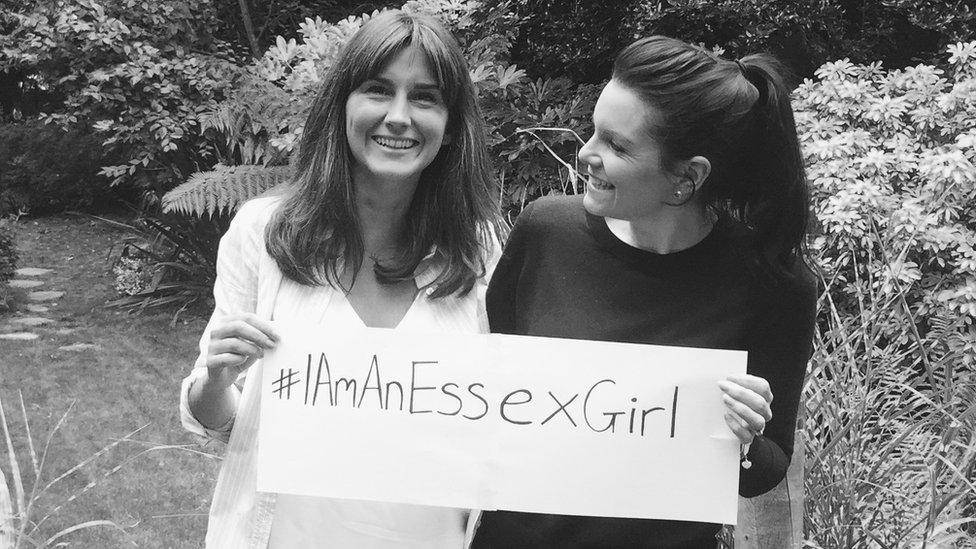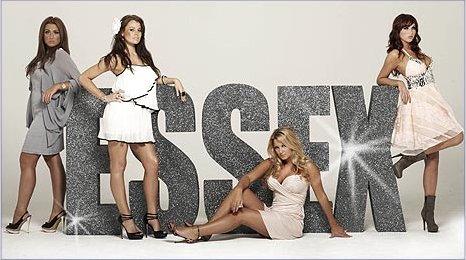Essex girls rise to delete term from dictionary
- Published

It is a phrase synonymous with 1990s ladette culture, used to define brash party girls in one part of England.
And that is why two Essex women have launched a campaign, external to remove the 'rude and stereotypical' term "Essex girl" from the Oxford English Dictionary.
Juliet Thomas and Natasha Sawkins want their proud peers to post their success under #IAmAnEssexGirl and sign their petition, external to have the term scrubbed.
But, a dictionary spokeswoman said, "nothing is ever taken out of the OED".
"It's a historical dictionary," she told the BBC. "Definitions can change, but an entry will never come out."
'It’s incredibly offensive,' says Juliet Thomas
The dictionary defines Essex girl as: "Essex girl n. [after Essex man n.] Brit. derogatory a contemptuous term applied (usu. joc.) to a type of young woman, supposedly to be found in and around Essex, and variously characterized as unintelligent, promiscuous, and materialistic."
The campaigners were further peeved by a Collins definition that added: "devoid of taste".
'Fight the stereotype'
Juliet Thomas told the BBC: "It's so rude and it doesn't define anyone I know in or from Essex. It describes a very dated stereotype."
The alternative meaning of just a girl in or from Essex was absent, she said. And it was "incredibly offensive" to see it in the dictionary with no reference to caricature.

The campaign wants Essex women to reclaim and redefine the term
She wants women to sign the petition with the aim of having the entry removed and to post their successes and support on social media to "redefine" what it means to be an Essex girl.
Among those who have backed the campaign, novelist Amanda Prowse tweeted her support, external and theatre technician Emily Holden tweeted: "I have a BA (hons) degree... I help put on awesome work. , external"
Ms Thomas said women, particularly young women, were still having to fight the Essex girl stereotype years after the term was coined.
"Girls feel they still have to listen to the same tired old jokes, feel like they have to fight twice as hard to be taken seriously at university," she said.
"It's tricky and disappointing to see it in writing in an official way. It reinforces it."
Towie backing
Ms Thomas said programmes such as scripted-reality soap opera The Only Way is Essex existed for other parts of the UK as well and shouldn't be allowed to define the women of an entire county.
Speaking on the BBC's Victoria Derbyshire show, former Towie star Grace Andrews said she backed the campaign "100 million per cent".
Essex-born Natalie Collins, Lyn Turner-Hedges, Helen Morgan and former cast member from The Only Way is Essex, Grace Andrews, speak to Victoria Derbyshire
- Published12 October 2010
